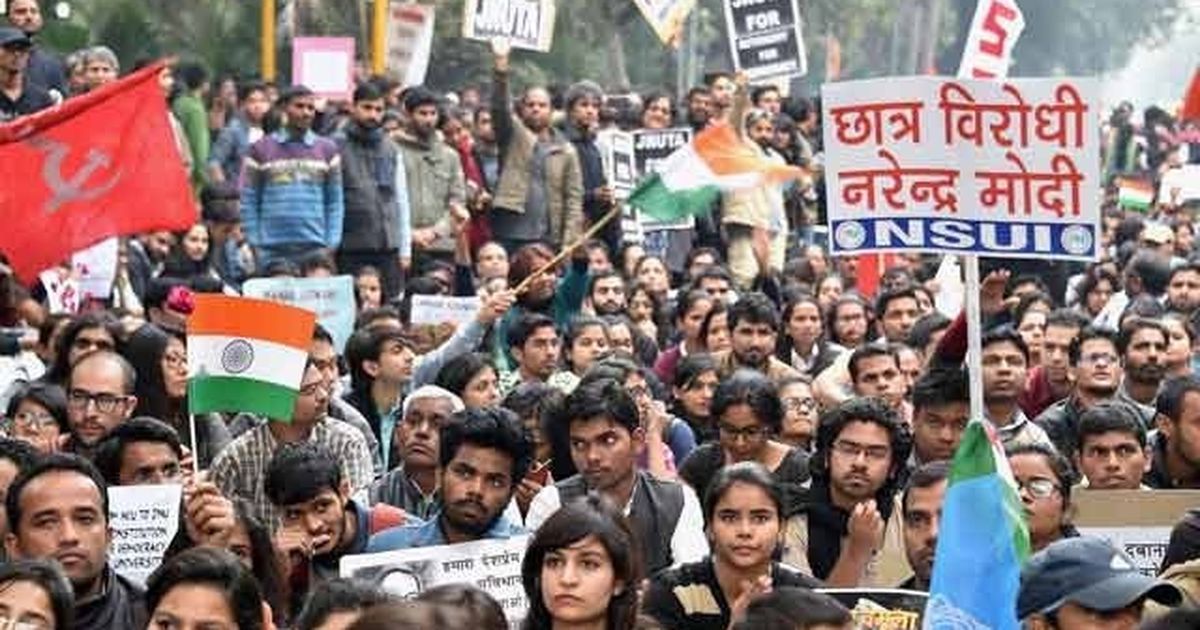From the corruption watchdog to universities and even the Army, the government's meddling habits are wrecking democracy.

One begins with this little lecture in civics and governance because one often senses that an urge for decisiveness or an image of efficiency subverts the value frames of the Narendra Modi regime. Modi mouthed all the right sentiments before he came to power. He, however, feels that his majoritarian government has a right to cut corners, to violate principles, to achieve what he personally dubs as national goals. It is like watching a policeman, who is supposed to be the traffic custodian, drive gleefully and indifferently through a series of red lights, making a mockery of law and order.
The institutional red lights in Prime Minister Narendra Modi’s government have been many. First, he did not take the appointment of the lokayukta regime seriously, here or in Gujarat. He quickly saw the anti-corruption watchdog as an institutional impediment and decided he did not want speed breakers to his regime. There was a complete shamelessness to his disregard for the lokayukta, which should have triggered warning bells. Instead, Lutyens’ Delhi welcomed him as a new epic hero.
Modi’s contempt for the institution of the lokayukta was direct. He pretended to be dead to the idea of the ombudsman. But his contamination of other institutions has sometimes been carried out by his more than enthusiastic colleagues. Former Human Resource Development Minister Smriti Irani and the corruption of the university comes next to mind.
Playing with education
One realises the sense of a spoilt system even in India. When a regime comes to power, it offers its loyalists and their lackeys plum appointments. The Modi government was open about slotting its people at the helm of the Nehru museum, University Grants Commission, and Institute of Advanced Studies, Shimla, signalling an ideological shift. But its attempt to alter university syllabi contaminated the few wisps of pluralism that remained, especially with its harassment of dissenting academics in the name of sedition. This attack on the academe was in line with the government’s critique and dismantling of environmentalist groups, literally stating that history and development should flow the way the ruling Bharatiya Janata Party wanted.
The continuous use of the idea of security undermined free thought and violated both the spirit of civil society and the university. The battles over Jawaharlal Nehru University and the University of Hyderabad were blatant attempts to deinstitutionalise the university. Modi’s bully boy tactics led to a surprising resistance, creating heroes out of students such as the late Dalit scholar Rohith Vemula and former JNU student body president Kanhaiya Kumar. The transfer of Irani to the textile ministry in July was an admission that the government’s attempt to tamper with the university was not as successful as it intended. It also revealed that India has academics still committed to the pluralistic idea of the university.
The university has been more defined than the scientific establishment in challenging the diktats of the regime. Modi’s dreams of big science in space and nuclear energy have found few open critics. The slow whittling down of a wide variety of scientific projects has attracted little debate in scientific institutions. In fact, some of the leaders of space research have openly wooed the Rashtriya Swayamsevak Sangh, making one wonder what happened to the grand traditions that Satish Dhawan and Vikram Sarabhai had set. One must add that the BJP’s wooing of former president and scientist APJ Abdul Kalam might have turned the scientific establishment into a soft target.
The Army approach
More embarrassing than the treatment of the university and the scientific establishment is the regime’s engagement with the Army. Part of it lies in the bumbling or intransigence of that sector of the bureaucracy. But part of it is a policy narcissism that the regime knows best.
Its choice last week of General Bipin Rawat as the next Army chief, superseding two senior officers, has urged people to ask whether the government still wants political neutrality in the Army echelons. Rawat’s continuous forays at his colleagues, questioning their competence, made the Army seem like a faction-ridden cabal. Finally, the Army’s decision to violate protocol and the government’s decision to violate protocol and seniority to appoint a junior general in command raised protest from the Army itself.
In all these instances, the Modi regime was ham-handed, convinced that some institutions are made for meddling. These decisions invoked no ritual of transparency. The BJP behaves like a dentist when it comes to certain institutions, riding rough-shod over the pain and confusion that inflicts.
Meddling habit
The only institution the regime has been wary about is the Supreme Court. While the controversy over judicial overactivism continuous, the party has been more than respectful of the judiciary, sensing that the court is more tricky about its autonomy than other institutions. But even here, the regime has taken to delaying judicial appointments.
Surveying the record, one senses the regime has been happy contaminating institutions. What it fails to understand is that institutional pollution, like river pollution, increases toxicity. Once an institution is damaged, it may be almost impossible to repair it. One wonders whether political parties ever realise that damaging institutions is the surest way to devastating democracy in the long run. Sadly, the realisation might come long after the damage is done. Early warning signals seem effete in the institutional darkness of today.
Shiv Visvanathan is social science nomad.
Courtesy: Scroll.in